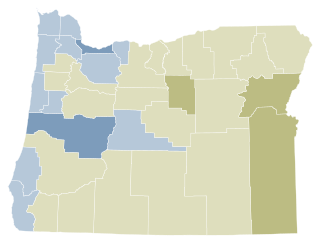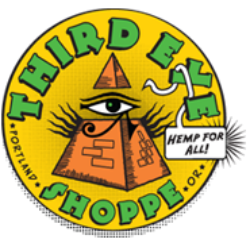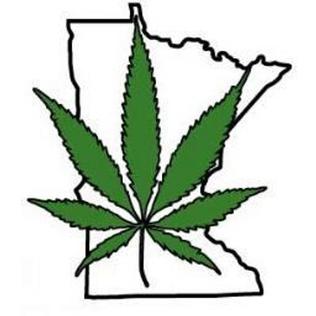The National Organization for the Reform of Marijuana Laws is a social welfare organization based in Washington, D.C., that advocates for the reform of marijuana laws in the United States regarding both medical and non-medical use. According to their website, NORML supports "the removal of all penalties for the private possession and responsible use of marijuana by adults, including cultivation for personal use, and casual nonprofit transfers of small amounts" and advocates for "the creation of a legal and regulatory framework for marijuana's production and retail sale to adults". NORML also has a sister organization, NORML Foundation, that focuses on educational efforts and providing legal assistance and support to people affected negatively by current marijuana laws. NORML maintains chapters in a number of US states as well as outside the US in countries such as Canada, France, New Zealand, and South Africa.

Jack Herer, sometimes called the "Emperor of Hemp", was an American cannabis rights activist and the author of the 1985 book The Emperor Wears No Clothes. Herer founded and served as the director of the organization Help End Marijuana Prohibition (HEMP).

The Oregon Medical Marijuana Act, a law in the U.S. state of Oregon, was established by Oregon Ballot Measure 67 in 1998, passing with 54.6% support. It modified state law to allow the cultivation, possession, and use of marijuana by doctor recommendation for patients with certain medical conditions. The Act does not affect federal law, which still prohibits the cultivation and possession of marijuana.

Cannabis in Oregon is legal for both medical and recreational use. In recent decades, the U.S. state of Oregon has had a number of legislative, legal, and cultural events surrounding use of cannabis. Oregon was the first state to decriminalize the possession of small amounts of cannabis, and among the first to authorize its use for medical purposes. An attempt to recriminalize possession of small amounts of cannabis was turned down by Oregon voters in 1997.

Portland's Hempstalk Festival is an annual event in Portland, Oregon advocating decriminalization of marijuana for medicinal, industrial, and recreational use. Founded in 2005, the festival often takes place the weekend after Labor Day and features food vendors, live music, and information booths. The event has always been free to attend.

In the United States, the use of cannabis for medical purposes is legal in 38 states, four out of five permanently inhabited U.S. territories, and the District of Columbia, as of March 2023. Ten other states have more restrictive laws limiting THC content, for the purpose of allowing access to products that are rich in cannabidiol (CBD), a non-psychoactive component of cannabis. There is significant variation in medical cannabis laws from state to state, including how it is produced and distributed, how it can be consumed, and what medical conditions it can be used for.
The World Famous Cannabis Cafe opened in Portland, Oregon, as the first cafe in the United States for state-authorized medical marijuana cardholders. Established in 2009 by Madeline Martinez, then the Executive Director of Oregon NORML, the Cannabis Cafe was established as a place for Oregon Medical Marijuana Program (OMMP) cardholders to socialize and safely medicate out of public view as required by state law. Members of the club had to be a current OMMP cardholder and pay an entry fee.

In the United States, the use and possession of cannabis is illegal under federal law for any purpose by way of the Controlled Substances Act of 1970 (CSA). Under the CSA, cannabis is classified as a Schedule I substance, determined to have a high potential for abuse and no accepted medical use. Despite this, most states have legalized either or both the medical and recreational use of cannabis.

The legal history of cannabis in the United States began with state-level prohibition in the early 20th century, with the first major federal limitations occurring in 1937. Starting with Oregon in 1973, individual states began to liberalize cannabis laws through decriminalization. In 1996, California became the first state to legalize medical cannabis, sparking a trend that spread to a majority of states by 2016. In 2012, Washington and Colorado became the first states to legalize cannabis for recreational use.

Oregon Ballot Measure 91 was a 2014 ballot measure in the U.S. state of Oregon. Its passage legalized the "recreational use of marijuana, based on regulation and taxation to be determined by the Oregon Liquor Control Commission".

The "Burnside Burn" was an event held on the Burnside Bridge in Portland, Oregon, starting at midnight on July 1, 2015, the day recreational marijuana became legal in the U.S. state of Oregon. It was organized by Portland NORML, the local chapter of the National Organization for the Reform of Marijuana Laws, having originated from its executive director, who wanted to photograph himself in front of the White Stag sign in the moments after Oregon Ballot Measure 91 took effect. The crowd, larger than anticipated, numbered in the thousands and at times blocked traffic lanes on the bridge. Some attendees wanted to commemorate the moment, while others were motivated by announcements of free marijuana and seeds. No fines were issued for consumption in public. The event was covered by cannabis publications, local and national news outlets, and the HBO television series Vice.

"Weed the People", officially "Weed the People: A Cannabis Legalization Celebration", was an event held in Portland on July 3, 2015, two days after recreational marijuana became legal in the U.S. state of Oregon. Sponsored by the Portland Mercury and two cannabis companies, the event was attended by an estimated 1,500–2,000 people, who were provided up to seven grams of marijuana for immediate consumption or to take home. Organizers complied with restrictions on recreational sales by distributing free cannabis and required attendees to pay an entry fee. More than 1,300 tickets were sold, but the building's 500-person capacity meant long wait times to enter. Media outlets reported on the historic nature of the event, which was described as a "stoner's paradise" and a celebration of freedom.
Madeline Martinez is an American cannabis rights activist.

Third Eye Shoppe, commonly known as The Third Eye, was a head shop in Portland, Oregon's Hawthorne district and Richmond neighborhood, in the United States. The shop was founded in 1987 and owned by cannabis and counterculture activist Jack Herer. His son, Mark Herer, took over as the shop's owner in 2001. The Third Eye closed on March 31, 2017, as a result of declining sales, development of the surrounding neighborhood, increasing health care costs, and increased competition. The shop was associated with Portland's cannabis culture and recreational drug tourism, and was included in Willamette Week's annual "Best of Portland" reader's poll several times.

Portland NORML is the National Organization for the Reform of Marijuana Laws (NORML) affiliate for Portland, Oregon, in the United States. The chapter was established in January 2015 by Portland-based radio host and cannabis activist Russ Belville. Scott Gordon serves as its executive director.

Minnesota NORML is the National Organization for the Reform of Marijuana Laws (NORML) affiliate for the U.S. state of Minnesota. As of 2017, Michael Ford served as the organization's executive director.
Ohio NORML is the National Organization for the Reform of Marijuana Laws affiliate for the U.S. state of Ohio.
To frame the lists below, here is an overview of women in the industry since as early as 2012 in the U.S. Cannabis has a long legal history in the U.S. from criminalization to liberalization given the emerging markets of legalizing medicinal and recreational use of cannabis. Women and issues relating to gender bias or sexism vs. gender equality and inclusion have played a significant role in various sectors of emerging markets, particularly in Colorado, California, and Oregon.

Analog Café and Theater, or simply The Analog, was a cafe and music venue in Portland, Oregon's Hosford-Abernethy neighborhood, in the United States. The venue also hosts DRD Records.












